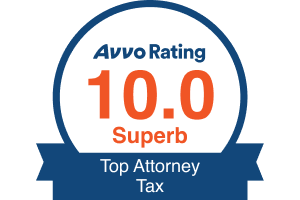Getting Results
CALIFORNIA FTB RESIDENCY TAX AUDIT DEFENSE
CALIFORNIA RESIDENCY STATUS FOR FTB INCOME TAX
California residency requires analysis of multiple factors to determine proper tax residency status. Amount of taxation varies depending on your status in California. (R&TC §17014). Professional athletes and coaches in the NBA, NHL and NFL are often targets of California FTB’s residency tax audits. Entertainers and remote workers have also been targeted for income tax audits by California FTB.
Why Does Tax Residency Matter
- California residents are taxed on worldwide income.
- Nonresidents of California may be taxed only on California income sources; and
- Temporary or part-time residents are taxed on California income source only while they were classified as a non-resident.
Who is a California Resident for FTB Tax Purposes R&TC §17014(a)
- Staying in California for other than a temporary or transitory purpose (vacation, meetings); or
- California Domicile (See Domicile Definition below): Legal factors show that a person is domiciled in California. A person may not be physically present in California but can still be domiciled in California. (Military, Students studying abroad, Person assigned to work outside of California for more than a year) Person who is domiciled in California but works outside of California will be taxed as if that person was a resident of Clifornia.
Subjective and Objective Factors to Determine California Domicile FTB
Legal theory of tax residency is that you are a resident of the state where you have the closest financial and social connections. The following factors were derived from various tax law cases to help determine tax residency status in California. FTB considers the place where you have the closest ties as your Domicile or Residency. During tax appeals or tax trial a comparative analysis of your ties to California versus another state is often reviewed. California residency factors are based on California tax court cases which have been developed over the last fifty years. Courts will analyze strength of your ties, number of ties and nature of your ties to California to determine your residency. Main factors to consider for California tax residency status:
- Physical Presence Test -Amount of time in California versus amount of time outside California.
- Family Ties – Location of your spouse/RDP and children.
- Real Estate Test -Location of your principal residence.
- Identification Test -State that issued your driver’s license.
- Asset Test – State where your vehicles are registered.
- Source of Income Test – State where you maintain your professional licenses.
- Voting Test – State where you are registered to vote.
- Financial Instruments -Location of the banks where you maintain accounts.
- Legal and Medical Representatives – Location of your medical professionals and other
- healthcare providers, accountants, and attorneys.
- Religion – Location of your social ties, such as your place of worship, professional associations, or social and country clubs of which you are a member.
The following are case laws that determine California domicile and tax residency:
Whittell v. Franchise Tax Board (1964) 231 Cal.App.2d 278, 231 Cal.App.2d at p. 285
Appeal of JOE AND GLORIA MORGAN 81A-1446
Appeal of Stephen D. Bragg (May 28, 2003) 2003-SBE-002
Appeal of Anthony V. and Beverly Zupanovich (January 6, 1976) 76-SBE-002
Safe Harbor FTB Income Tax California
The “safe harbor” provision for individuals leaving California under employment-related contracts offers a clear framework for establishing nonresidency status for someone who may be domiciled in California. Here’s a breakdown of the key points:
Duration Requirement:
The individual must be outside California for at least 546 consecutive days under an employment-related contract. Conditional Nonresident Status will be granted unless:
- They have intangible income exceeding $200,000 in any taxable year while the contract is in effect.
- The primary purpose of leaving California is to avoid personal income tax.
- The spouse/RDP will also be considered a nonresident if they accompany the individual for at least 546 consecutive days outside California.
Return Visits:
Return visits to California must not exceed 45 days in total during any taxable year covered by the employment contract to be considered temporary.
DOMICILE VS RESIDENCE IN CALIFORNIA
Distinction Between Domicile and Residence:
Domicile and residence are not the same. California differentiates between the two, unlike many states that consider them identical. You can be domiciled in California but not a resident, or domiciled elsewhere but a California resident for tax purposes.
Definition of Domicile:
California FTB defines for tax purposes domicile as the place where you voluntarily establish yourself and family, not merely for a special or limited purpose, but with a present intention of making it your true, fixed, permanent home and principal establishment. California FTB focuses on tax domicile as where the taxpayer establishes permanent home with the intention to return whenever absent. It is not for a temporary purpose but intended to be your true, fixed, permanent home. Maintaining a marital home in California is a significant factor in establishing domicile in California.
How to Change FTB Tax Domicile in California:
You can only have one domicile at a time. The California Court of Appeal and the FTB’s regulations define “tax domicile” as the location where a taxpayer has the most settled and permanent connection, and the place to which a person intends to return when absent. (Whittell v. Franchise Tax Board (1964) 231 Cal.App.2d 278; 18 Cal. Code Regs. §17014) In rare situations, a taxpayer may be domiciled in California but be considered as non-resident for tax purposes. In this case, the individual may be taxed only on income from California sources. (Safe Harbor Factor test)
To change California FTB Tax domicile, you must:
- Abandon your prior domicile.
- Physically move and reside in the new place.
- Intend to remain there permanently or indefinitely, as shown by your actions.
- See FTB tax residency factor test above.




















